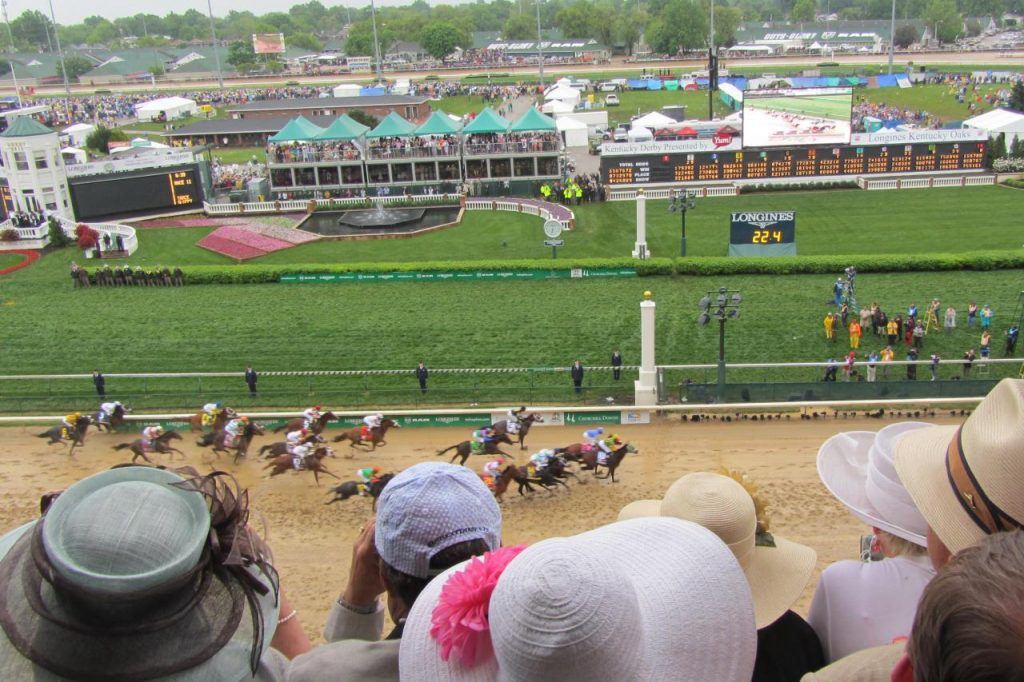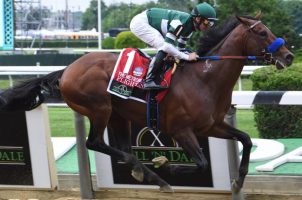Churchill Downs to Host Some Fans for September Kentucky Derby, Invests $13.5M to Expand Instant Racing Parlor
Posted on: June 29, 2020, 03:45h.
Last updated on: June 29, 2020, 09:59h.
Churchill Downs got a bit of good news last week when the iconic Louisville racetrack announced it received approval from Kentucky Gov. Andy Beshear (D) to run this year’s Kentucky Derby before a crowd. But capacity will be limited, so don’t expect the usual 150,000-plus the track’s drawn every year since 2005.

In a statement Thursday, track president Kevin Flanery said his staff will take all measures needed to protect those who visit the Twin Spires.
“In response to the COVID-19 pandemic, we have established a comprehensive set of operating procedures, which include a multitude of precautionary measures to be followed while fans are in attendance at our facility,” Flanery said. “We are determined to keep our customers, employees, and communities as safe as we responsibly can.”
While no figure was revealed, Churchill Downs outlined several steps it plans to take to control the crowd and the spread of the virus.
Limited general admissions tickets will be sold, and those patrons will only have access to the infield. Information to ticket and suite holders will be sent to them about the track’s plans for its reserved and premium-seating customers.
The decision to allow fans also comes at a time when some states have started to roll back their reopening plans because of COVID-19 spikes. Kentucky, though, has not seen a dramatic uptick in cases.
Churchill Downs will hold its Derby Week card beginning Sept. 1. It wrapped up its truncated spring meet on Sunday.
Premium Seats Biggest Revenue Generator
The announcement came after Churchill Downs Inc. (CDI), the track’s publicly traded parent company, gave a presentation during a Jeffries investor conference. According to the slide deck, CDI leaders touted the Kentucky Derby as a profit driver for the company.
Churchill Downs generates most of its revenue from Derby Week through ticket sales, and within that, the track’s premium seats — both reserved seating and suites — generate most of the revenue.
According to its presentation, of the approximately 60,000 premium seats, more than a third are sold “under non-cancellable contracts,” which can last between three and seven years. The track sells the remainder usually within the first couple months of the year, and the demand for those tickets, officials said, outpaces supply.
Being able to have at least some fans and some big-spending ticket-holders at the track will cushion the financial blow for Churchill Downs. What remains to be seen is what impact, if any, the September date will have on the betting handle.
Last year, the all-sources handle for the Kentucky Derby was a record $250.9 million, and it marked the third straight record for total wagering. In traditional years, the Derby goes up against baseball and playoff hockey and basketball. Those will be going on as well in September. But the new date for the Derby coincides with the first full weekend of college football action, which may keep the more casual horse player away this year.
CDI Expanding Derby City Gaming
CDI also revealed to investors that it’s spending $13.5 million to build a second outdoor smoking patio at Derby City Gaming, its historical horse racing (HHR) — also known as instant racing — facility in Louisville. The patio will allow Derby City to add 195 more games at the parlor and should open during the fourth quarter of this year.
The additional games should help Derby City close the gap on Caesars Southern Indiana for gaming dollars in the Louisville market. Before both facilities closed in March because of the coronavirus, Caesars, which moved to a $90 million land-based casino in December, was winning an average of $346 per day from its 1,200 slot machines.
Derby City was averaging a daily win average of $299 on its 1,006 machines. That’s up more than 42 percent from March 2019.
Related News Articles
Road to Kentucky Derby Features Three Stakes Races on Saturday
Flightline Seeks to Make Breeders Cup Classic Case Saturday at Del Mar
Most Popular
VEGAS MYTHS BUSTED: Golden Gate is the Oldest Casino in Vegas
Las Vegas Overstated F1 Race’s Vegas Impact — Report
Most Commented
-
End of the Line for Las Vegas Monorail
— April 5, 2024 — 90 Comments -
Mega Millions Reportedly Mulling Substantial Ticket Price Increase
— April 16, 2024 — 6 Comments
















No comments yet